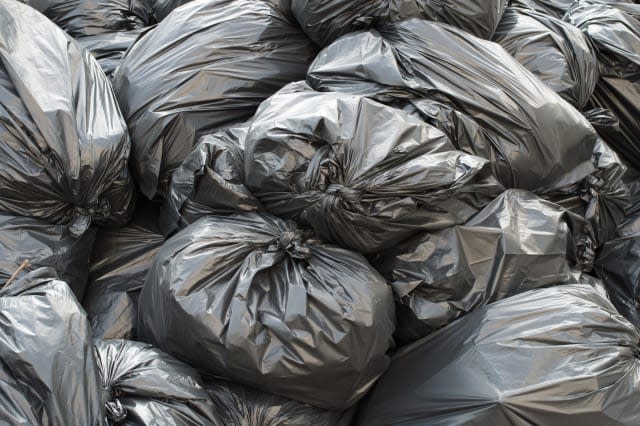Brits chuck 66m bin bags of stuff to make way for presents

The pre-Christmas purge is an annual event in many households. We know we're going to spend a fortune on bright and shiny things, so we need to make space by clearing out armfuls of the older and duller things. In fact, during this period we bin 66 million bin-bags of stuff. It's a shameful level of waste.
See also: Mothers deserve Christmas gifts more than anyone, say young children in poll
See also: Don't waste your cash on presents people don't want
See also: Are your Christmas presents a gift to cyber-criminals?
Research from Ziffit.com found that 38% of households will have a clear out before Christmas, and a third admit it is purely to make space for new gifts. It perhaps shouldn't come as such a surprise when we are in a constant cycle of upgrading technology, keeping up with fashion, and dealing with expanding waistlines.
However, clearly this level of waste is extraordinarily expensive, and something we need to address. There are five levels of festive frugality depending on how extreme you are prepared to be in your efforts to save cash and the planet - which one are you up to?
1. Dipping your toe in - at least ensuring things don't go to waste
At the very least when we clear the clutter we can donate items to charity shops. If you sign a gift aid form when donating bags of junk, then your donation will go even further.
2. Mildly frugal - selling stuff
A study by TopCashback.co.uk found that a quarter of people have unused gadgets gathering dust in the kitchen, while anther quarter have technology they don't use any more, and a fifth have unused sporting equipment.
Everyone from Music Magpie to eBay, Preloved and Ziffit offer ways to sell on your clutter, and if you're prepared to list it, you could easily make £100 from a typical clear-out.
3. Moderate cost-cutting - Cut back
The Ziffit study found that not only do we chuck out the clutter before Christmas, but we end up with a load of stuff we don't want after Christmas too. Almost two-thirds of people surveyed are expecting to receive unwanted gifts that they will never use, and shockingly, one in 10 of these will end up in landfill.
One option is therefore to consider those people most likely to give you unwanted gifts, and come to some sort of arrangement with them. You can ask them to buy you something specific, you can agree to take a break from buying presents for one another, or you could ask for food and drink - which will bring down the cost of Christmas.
4. Advanced money-saving - Give it away
Research by MusicMagpie.co.uk has found that 45% of Brits would give pre-owned presents, whilst one in five would be perfectly happy if every gift they received was pre-owned. When it comes to specific presents almost half (49%) wouldn't mind receiving a pre-owned book for Christmas. This was closely followed by DVDs (33%), CDs and vinyl (33%), jewellery (25%) and tools (16%).
Clearly not all our junk is going to be welcome as a gift, but there are two categories of gifts that go down well. First is something you really love. If you have an ornament, artwork or piece of jewellery that you love and someone has admired, then you can consider giving it to them. You know they like it, and it'll clear some space. Likewise, if you have read and loved a book or DVD, then you will be giving away something thoughtful rather than just offloading old junk.
The other category is technology. A young person who doesn't have their own phone, console, or a TV in their room, isn't necessarily going to be picky if their first one is a second hand gift from you. Of course, it pays to check that this is something they want before you dust it off and wrap it, but if they're keen, you both stand to gain.
5. Full-on frugality - Opting out of buying shiny new things altogether
Just because we do this every year, it doesn't mean we have to continue doing it. In many cases, there's no desperate need to upgrade the technology, and there's nothing wrong with last season's fashions. By opting out of the relentless cycle of chucking and buying for one year, you could save hundreds of pounds this Christmas.
And it doesn't mean a dull present-free time. Andrew Pendleton, head of campaigns at Friends of the Earth points out: "Giving experiences rather than just stuff is becoming increasingly popular, as are e-cards which have the benefit of being instant – no more missing the last Christmas post. There are also loads of creative, on-trend ways to upcycle at Christmas with home-made decorations and delicious left-over recipes. These are all small ways you can help to chuck out less – good for you, your wallet and the environment."
So what do you think? Would you try one of these approaches, and would you consider taking a year off the endless shopping schedule? Let us know in the comments.




